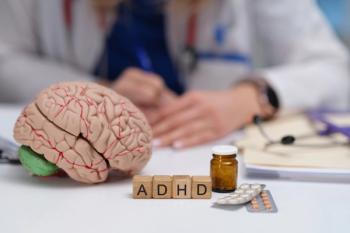
Safety and Efficacy of SDX/d-MPH in Pediatric ADHD
Drs Robert L. Findling and Timothy Wilens discuss the efficacy and safety data of serdexmethylphenidate/dexmethylphenidate (SDX/d-MPH) in childhood ADHD.
Episodes in this series

Robert L. Findling, MD, MBA: There’s 1 published study that focused on double-blind, placebo control with this agent. Do you want to talk about that paper? It’s the first double-blind paper I’m aware of that has been published about this combination prodrug immediate-release dexmethylphenidate.
Timothy Wilens, MD: This is a well-conducted study. These are FDA regulatory studies, so they have to be well conducted. This study was using a heralded technology: a laboratory classroom. It’s been around for 20-plus years. They did an open phase dosed to the person’s optimal dose. They could start at 26 mg and ultimately work their way up to 52 mg, which is the dosing scheme for this product. Then you were assigned the best dose that was determined in either the open phase, titration phase, or placebo. You stayed on that for 7 days, and then they brought you in and they did the famous analog classroom that Wigal, Swanson, and Pelham mapped out a number of years ago.
In the laboratory classroom, they compared patients on placebo with those who were on active serdexmethylphenidate, methylphenidate, dexmethylphenidate. They found significant differences through almost all time points in the classroom in the treated vs placebo group. It was a sizable number of participants: 150. It was a multisite study with very significant findings. That’s what’s required when you have a light compound like that and its proof of efficacy. I don’t think anybody questions whether the compound works. It’s a stimulant. It’s trying to pick the ideal patients and get a better sense of how long it takes to kick in and how long it lasts in real life. That’s what people are asking now.
Robert L. Findling, MD, MBA: I’m curious about how long the data suggest this lasts. Everyone—particularly first-time parents—always asks about safety. Are there any surprises about safety or tolerability that would be disconcerting?
Timothy Wilens, MD: Not at all. It’s a stimulant, so it looks and smells like a methylphenidate stimulant. I made a comment earlier about amphetamine and methylphenidate. This looks very similar to methylphenidate, so there’s nothing that concerning. Any time you get a more extended-release compound, you always worry that you’ll see more appetite or sleep issues, but the answer is no. It’s very similar to others.
Robert L. Findling, MD, MBA: About how long does the medicine seem to last, at least in this context of an analog classroom?
Timothy Wilens, MD: It was over 12 hours, but there’s some evidence that it lasts even longer.
Robert L. Findling, MD, MBA: You’re way ahead of me, as always. For whom might this be particularly innovative and helpful? Or conversely, are there people for whom this isn’t the right thing?
Timothy Wilens, MD: Knowing the ideal patient for any medicine is tricky and takes a bit of use. Some of these are early, based on reading the data and knowing the compound a little. First, it’s a methylphenidate, it’s a dextromethylphenidate, so this is going to be good for pretty much all children and adults who have ADHD [attention-deficit/hyperactivity disorder]. Would I use it in children under 10 years old? Probably not. I tend to use shorter-duration medicines in that group. Probably 10 to 12 years old is when you start to click up to the extended release, so anybody in that group.
As a substance use guy, I’d say that we’re obligated to use extended-release stimulants. Now that we have one that may even differentiate within the different extended-release preparations, for children who are at risk for substance use or have conduct or substance use, that would be a great consideration. For children in boarding schools or those who are going on to college—especially more competitive colleges—that’s where stimulant misuse occurs. There tends to be less stimulant misuse with extended release, and this one may even be less than the others. Those are the groups that I’m thinking about right out of the gate. As an extended-release dextromethylphenidate preparation, it’s going to be fine across the life span, with the exception of the younger children.
Transcript edited for clarity
Newsletter
Access practical, evidence-based guidance to support better care for our youngest patients. Join our email list for the latest clinical updates.











